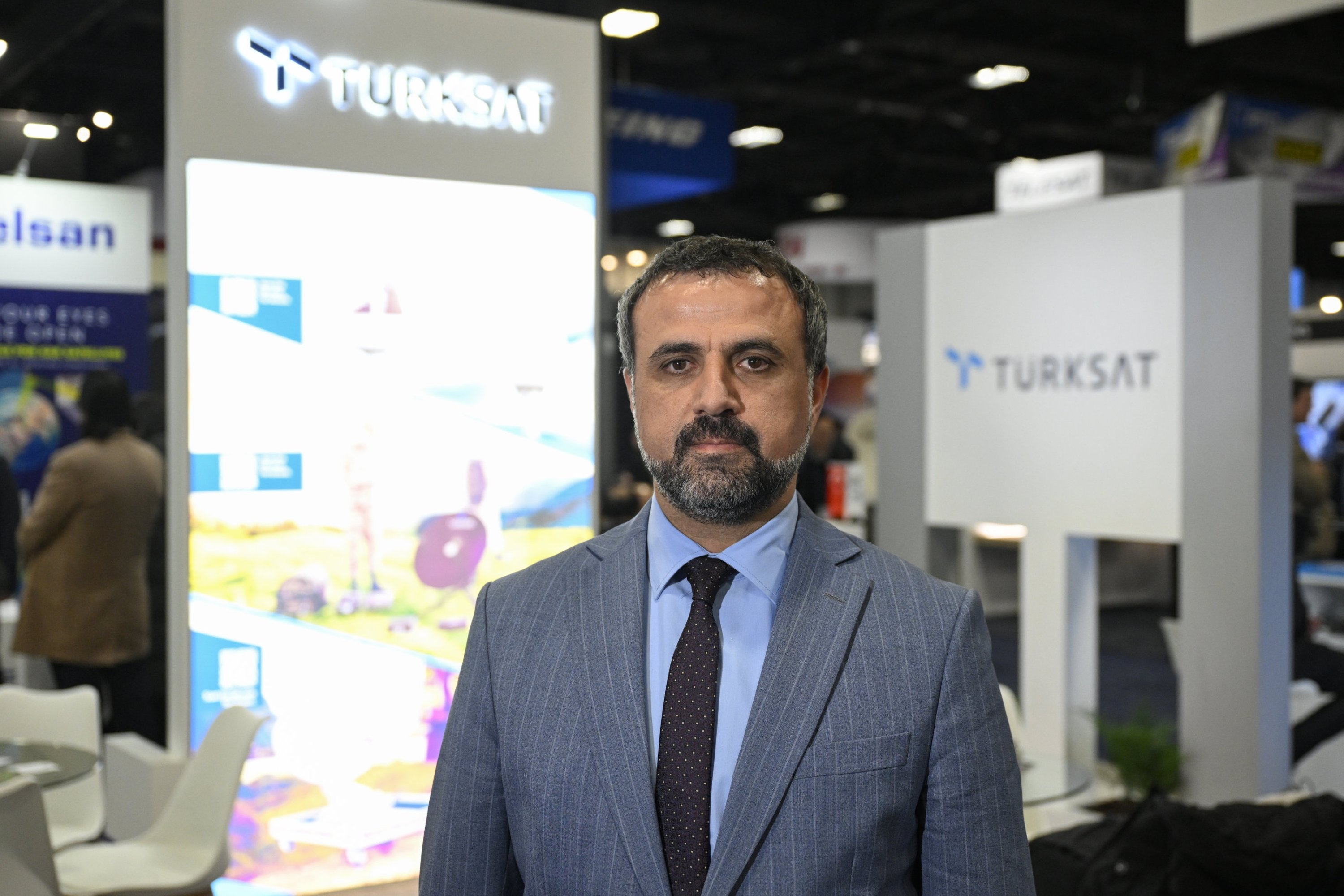© Turkuvaz Haberleşme ve Yayıncılık 2026
The flight model and antenna tests of Türkiye's first indigenous and national communication satellite, Türksat 6A, have been completed, an official said Wednesday, adding that work is nearing an end.
Following the general structure tests of the system, the satellite would be packaged and sent to the launch center, according to Türksat CEO Hasan Hüseyin Ertok.
Ertok, speaking to Anadolu Agency (AA) in the U.S. capital, Washington, where he was to attend the world's largest satellite fair "Satellite 2024 Conference & Exhibition," evaluated the efforts amid a planned launch of Türksat 6A into space later this year.
"We can say that the work has now come to an end. The most important tests of the flight model and the antenna tests were completed in the past weeks," he said.
"Now, there are a few minor tests regarding the general structure of the system, after which we will move on to the stage of packaging the satellite and sending it to the launch center," he added.
Ertok said that the aim is to launch the satellite by the end of June, but he has mentioned that the date might be delayed.
He noted that hundreds of engineers have been working on the project for approximately 10 years, and the launch of the satellite is eagerly awaited.

He also said that the satellite would be launched into space by the Space X Falcon 9 rocket from Cape Canaveral Base in the state of Florida.
The Türksat general manager emphasized the importance of Türksat 6A and said the biggest significance of Türksat 6A "is that it is the largest indigenous satellite production our country has ever undertaken."
"Many equipment, software systems and ground systems were developed domestically. The most important aspect of Türksat 6A is that it is a major milestone in Türkiye's space ecosystem, the satellite ecosystem."
Ertok stated that Türksat 6A would be placed in a geostationary orbit at 42 degrees east longitude. He explained that some customers will be transferred from the Türksat 3A satellite, whose lifespan has expired, to Türksat 6A.
Indicating that the coverage area will extend to India and Indonesia with the commissioning of Türksat 6A, Ertok said, "Thus, we will further expand our coverage area."
According to a separate AA report, in addition to the country's satellite operator, Türksat, two other Turkish satellite technology firms, Turkish Aerospace Industries (TAI) and Aselsan, showcased their products and capabilities at the Satellite 2024 Conference held in Washington.
The conference brought together the world's largest satellite producers and operators, as the event shaped the industry's future.
Enver Iskurt, deputy transportation and infrastructure minister, told AA that they were proud of the three Turkish firms exhibiting at the event.
He mentioned the new satellite Türksat 6A, stressing how it is made entirely by Turkish firms.
Ertok said that the event is the largest in the field, where all stakeholders of the industry come together to participate.
"We have come to this event to present our product range, which we have expanded in recent years, the developments we have made so far, and to introduce our country," he said.
He mentioned that they showcased new technologies they currently work on, especially in areas such as providing internet service in aviation and watercraft.
Mustafa Yaman, vice president at the defense firm Aselsan, said that the firm showcased satellite equipment and ground and user terminals at the event.
Taha Tetik, space systems programs director at aircraft maker TAI, said that they exhibited their domestically produced products, such as communication and observation satellites, and attended the event to meet potential customers and make new connections for potential cooperation.
